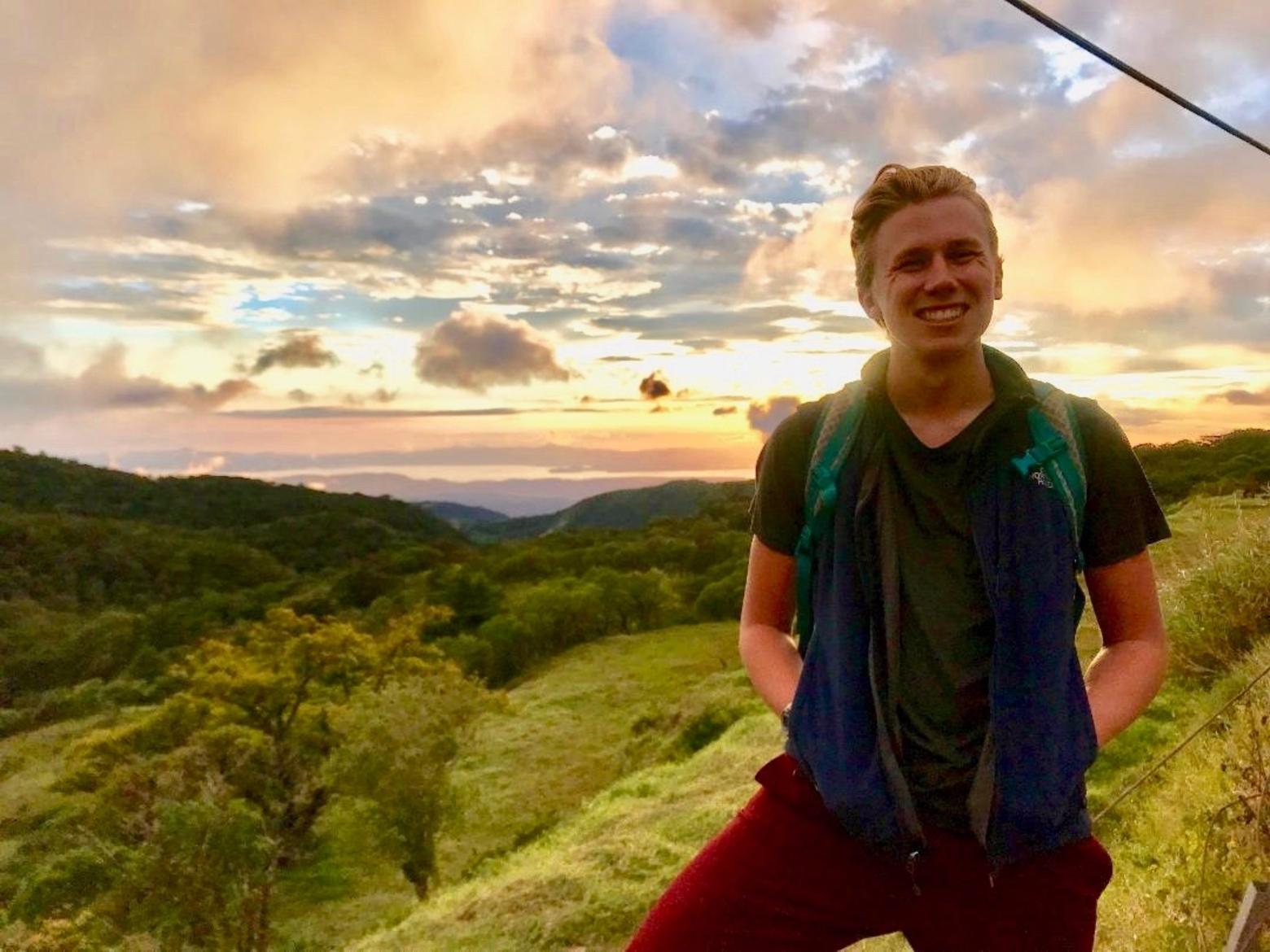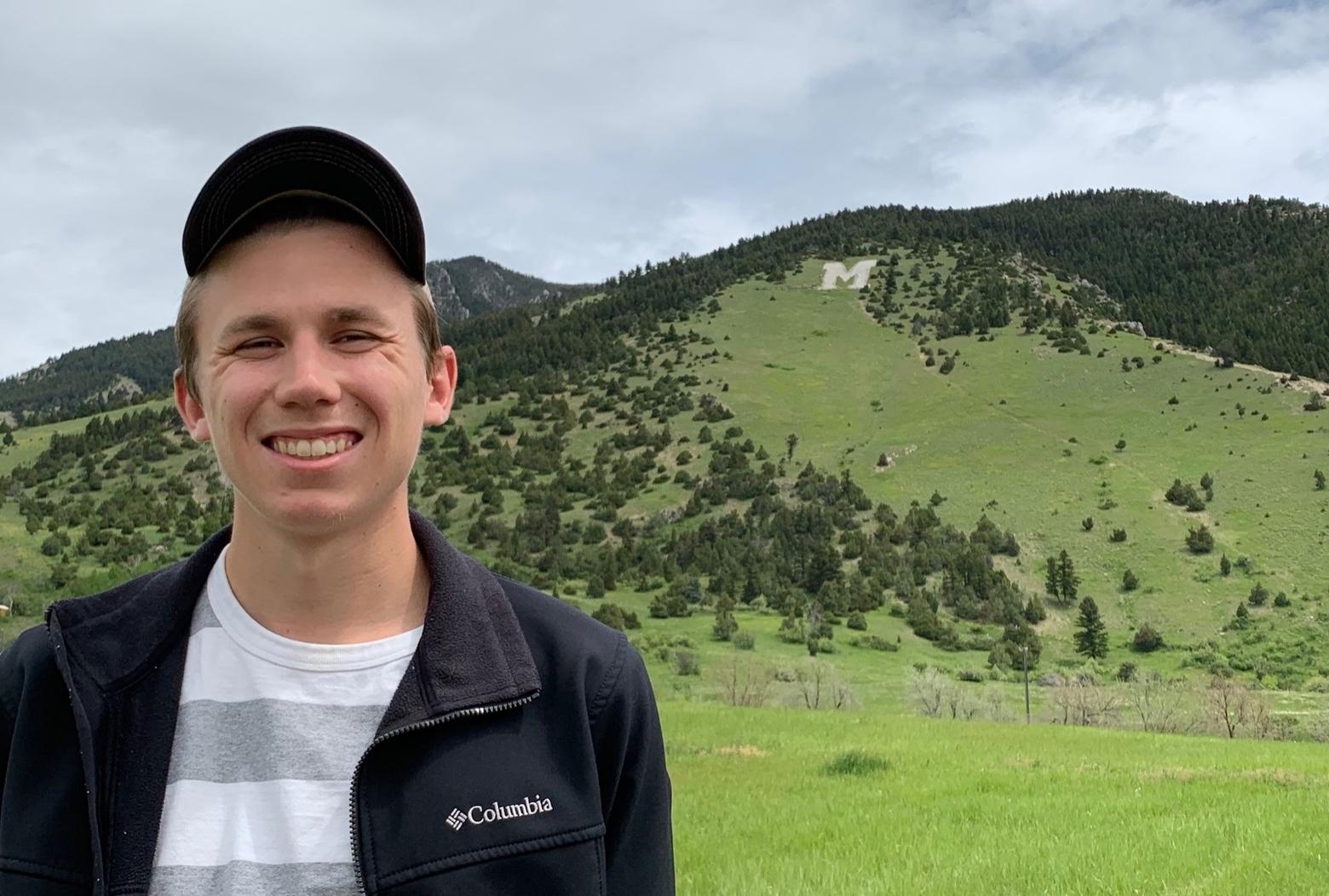Back to StoriesSummer Boot Camp In Greater Yellowstone
June 10, 2019
Summer Boot Camp In Greater YellowstoneMeet Mountain Journal intern Jordan Payne. He's bringing fresh young eyes in writing about America's most iconic wildland ecosystem
Mountain Journal welcomes Jordan Payne, who is spending much of the summer with us in Greater Yellowstone as our intern. We're delighted to have him and we intend to give him a sense of our region by sending him to different corners of the ecosystem. We hope you may catch a glimpse of him or read his work as he comes to a community near you.
Jordan is a student at Whitman College in Walla Walla, Washington, a liberal arts institution known for its environmental studies and writing programs. We're offering you this interview with Jordan so that you can become familiar with him but moving forward he'll be the aspiring journalist peppering his subjects with questions.
Mountain Journal: What's one thing you wished your friends knew about you?
Jordan Payne: This is something I did not really consciously notice about myself until recently. I wish they knew how often I find myself in my head, walking along streams, climbing up in a tree, or sitting on a hillside. I write stories, and the settings of the stories turn into little natural worlds that can I move through while I am stuck inside or lying in bed. My time inside is made bearable by these micro-excursions.
MoJo: Share a few key details about your upbringing...since you're going to be interning with MoJo this summer, answering the who, what, where, why, hows and where you're from.
Payne: I was born in the Santa Cruz Mountains south of San Francisco and grew up spending long days in the redwood forests, meadows, and chaparral that surrounded my home. This immersion instilled with me a love for nature that has only grown. My mother is a writer, and so I grew up reading. I read a lot but was never really interested in writing or English until I had two amazing English teachers in high school. At Whitman, a small liberal arts school in Walla Walla, Washington, I have focused on three main areas of coursework: environmental studies, English, and politics. I am exceedingly interested in the practical intersection of those three arenas, namely communications, environmentalism, and public policy. In the past I have conducted ecological research in the field, done conservation work and habitat restoration, and worked on corporate social media for a conservation organization. For me, Mountain Journal is the next step, and nestles quite nicely within the intersection of my interests. I am excited to learn about and travel around another region of the country and improve my writing, reporting, and environmental knowledge.
MoJo: As a place a matriculation, Whitman is known for its environmental studies programs. Who are some of your mentors, and why?
Payne: Whitman’s environmental studies programs are as broad as they are deep, and as such I have had the incredible opportunity to interact with and learn from very different and amazing people. I have had the incredible fortune to have Don Snow as my advisor from my arrival at Whitman onwards. Don spent much of his life as an environmental activist and is both a brilliant writer and thinker. You may have read his writing in Testimony: Writers of the West Speak on Behalf of Utah Wilderness. He is an incredible asset in developing critical thinking and holds his students to high standards and I have benefited from his tutelage in the way I think, write, read, and engage with the world. Another role model of mine is Kate Shea, a classics professor who focuses on ideas of nature and femininity within ancient texts. Her courses make incredible connections to the present, and she cares deeply about the writing of her students. She takes the time to sit down with each student to grade each essay we turn in, spending 30 minutes for each essay to help us become better writers. They are both heads of my department, and one of the reasons I chose the major I did. I love almost all of my professors, but these are the two that have really played a role in my life in environmental work.
MoJo: No sooner had you arrived in Bozeman than you were assigned to attend and write a piece about Future West's conference. Was it helpful in giving you a better understanding about issues shaping Greater Yellowstone and the interior West?
Payne: Absolutely. I am very familiar with the environmental issues of California along with Washington, and many of the concerns such as drought, wildfires, and water rights we share in common. However, much of California and Eastern Washington hold severely degraded ecosystems, and as such our concerns are more focused on restoration and urban issues. The conference was a fantastic introduction into more intact and more intense ecosystems and the issues that come alongside living in such an incredible place.
MoJo: Before you arrived in Greater Yellowstone, what was your perception of it as a region?
Payne: I understood it as a wild area with a stable ecosystem and have learned about the area geologically and in terms of biological case studies, but not as a place with human communities nor as a place I really had a realistic grasp on. For example, I knew about the problems between ranchers and wildlife, as well as the effects of the reintroduction of wolves on Yellowstone. But the conference changed and vastly deepened my understanding of the area and I am excited to continue to increase my knowledge and familiarity with Bozeman and the Greater Yellowstone area.
MoJo: There is strong interest coast to coast in environmental justice issues among members of the Millennial and Gen Z generations. What are the environmental issues of most interest to you?
Payne: Within environmental issues, I am interested especially in the future of agriculture, ocean clean-up efforts, and habitat restoration efforts, especially wetland and marsh restoration. However, we will never be able to solve these issues long term as long as social discrimination and economic disparity create disadvantaged groups. Inversely, environmental issues often impact the impoverished the most. As such, it is not enough to tackle just environmental issues, as social and economic issues contribute substantially to environmental problems. This is why the Future West conference appealed so greatly to me, because it focused on the broader definition of sustainability and what true environmentalism has to look like.
MoJo: What brings meaning to you in terms of place on a landscape?
Payne: California’s state rock is serpentine, which is a green rock high in toxic metals and low in nutrients. In areas where serpentine is the primary substrate, it is very difficult for plants to succeed. The poor quality of the soil has led to the evolution of species that are able to live in these harsh areas. As such, the communities that grow on top of serpentine are very unique and special, and delicate to change. On the Pacific coast, the ever-changing sand dunes make it nearly impossible for life outside of a few specialized plants, shorebirds, and solitary bees. I love these highly adapted landscapes, where the forces that lead to the unique composition of the communities are obvious as is the case in riparian areas and high alpine regions. To put it simply, I connect well with harsh landscapes.
MoJo: Who are the people who have most influenced you?
Payne: This is a tough one. I draw a lot of ideas and inspiration from books I read, fiction as often as not, so I would have a lot of authors in my list. John Steinbeck, Ernest Hemingway, Jon Krakauer, and Annie Dillard are a few, for the ways they present the world and engage with ideas. The list is long. My parents of course, many of my high school English teachers and college professors, and my neighbors in the Santa Cruz mountains all have greatly influenced me and continue to do so.
MoJo: Do you have any reservations about reporting from grizzly, wolf and bison country?
Payne: I do not, and in fact am very excited to do so. However, what is wild in California is very different from what is wild here, and as such I understand that I have a lot to learn. My mother, on the other hand, mentions grizzlies each and every time we talk.
MoJo: What are some of the things you absolutely, positively want to do while you're here with us?
Payne: I am so excited to explore the area through this internship, and I am sure almost all of my goals will be met through my everyday work. That said, I cannot imagine coming to Montana without going to Glacier, and I would absolutely love to see a wolf.



